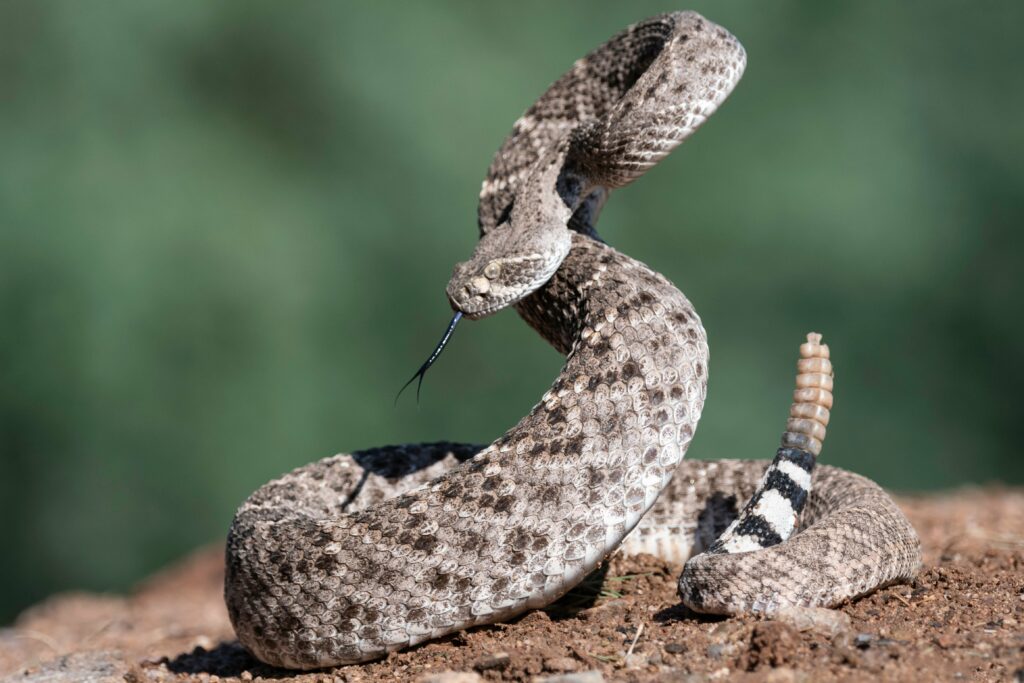Venomous Snakes of North Texas and Emergency Bite Care

A close encounter with a venomous North Texas snake can be an unsettling experience for pets and their owners. Our team at McKinney Emergency Veterinary Clinic is fully prepared and equipped to treat snake envenomations to provide your furry companion with the best chances for a full recovery. If you suspect your pet has had a brush with a venomous snake, make sure to contact us as soon as possible.
Top Venomous Snakes of North Texas
The DFW area is home to various snakes, some of which can cause serious harm to humans and their pets. It’s important to recognize these snakes and be aware of what to do in the event of an unwelcome encounter.
Here are some of the most common venomous snakes in North Texas:

Copperheads: The copperhead is one of the most common and most dangerous snakes in North Texas. Copperheads can be found in McKinney, Frisco, Prosper, and the surrounding communities, in wooded, shady areas and around water. They have copper-red heads and a distinctive pattern with hourglass-shaped brown or grayish bands across the body.

Cottonmouths: Also known as the water moccasin, the cottonmouth is another North Texas snake often found near water resources like creeks and lakes. These venomous snakes are usually dark-colored with broad, triangular heads and thick bodies. Cottonmouths can be aggressive and quick to strike in self-defense if they feel threatened.

Rattlesnakes: The western pygmy rattlesnake, western diamondback rattlesnake, and timber rattlesnake can also be found in wooded or rocky areas of North Texas. All types of rattlesnakes are highly venomous and are easily recognizable by the distinct rattle at the end of their tails.

Coral Snake: The coral snake is considered one of the most dangerous snakes in North Texas. They are usually small and colorful, with yellow, red, and black bands. Coral snakes are frequently mistaken for their non-venomous look-alikes. However, their bite can cause serious damage and lead to death without prompt treatment.
Preventing Snake Envenomations
The best way to prevent venomous snake bites is to avoid encounters. Keep your yard clean of excess brush and clean up food or birdseed that can attract rodents, which, in turn, can attract snakes.
If you’re out on a stroll with your furry companion and come across a snake, stay calm and keep a safe distance. Never try to catch or kill a venomous snake because it can strike and envenomate you or your pet even after dying. If you or your pet get bitten, seek immediate medical attention.
What Are the Signs of a Pet Venomous Snake Bite?
Here are some signs of pet envenomation to watch out for:
- Puncture marks and swelling
- Weakness and lethargy
- Vomiting and diarrhea
- Dilated pupils
- Reduced blinking
- Bleeding from the mouth or nose
- Pale or blue-tinged gums
- Rapid or labored breathing
- Muscle tremors
- Collapse and paralysis
- Dark or bloody urine
Keep in mind that symptoms of venomous snake bites may vary, and the size of a snake doesn’t have anything to do with the potency of venom.
Snake Bite Emergency Care
If you suspect your cat or dog has been bitten by a venomous snake, don’t wait. Contact McKinney Emergency Veterinary Clinic immediately for emergency care. Even if the symptoms seem mild initially, don’t wait for them to worsen.
Meanwhile, rinse the bite wound with clean water and keep your pet calm to minimize the spread of venom. Do not apply a tourniquet or ice or try to suck out the venom. The sooner you seek treatment, the better the outcomes for your furry friend.
Treating Venomous Snake Bites
When you get to McKinney Emergency Veterinary Clinic, we will evaluate your pet’s condition, run blood work, and begin prompt treatment. It’s always helpful for us if you can identify the snake, but please never try to kill the snake or bring it along with you.
Snake bites can be extremely painful and cause swelling, clotting abnormalities, and tissue death.
We typically recommend antivenom (antivenin) transfusions right away to minimize the risk of long-term damage. In severe cases, a blood transfusion may be necessary, especially if there’s been a delay in starting antivenom treatment. Your pet may also need hospitalization for at least 24 hours for additional support care. After discharge, your pet will need a week or two of rest and recovery.
Emergency Snake Bite Near Me in McKinney, TX
At McKinney Emergency Veterinary Clinic, we understand the urgency of treating pet snake bites immediately to ensure the best possible outcomes. That’s why we carry antivenom and have protocols in place to provide your furry companion with immediate care. If you suspect your pet has a snake bite or experiences any other emergency, call 469-820-0233 to schedule an appointment.
